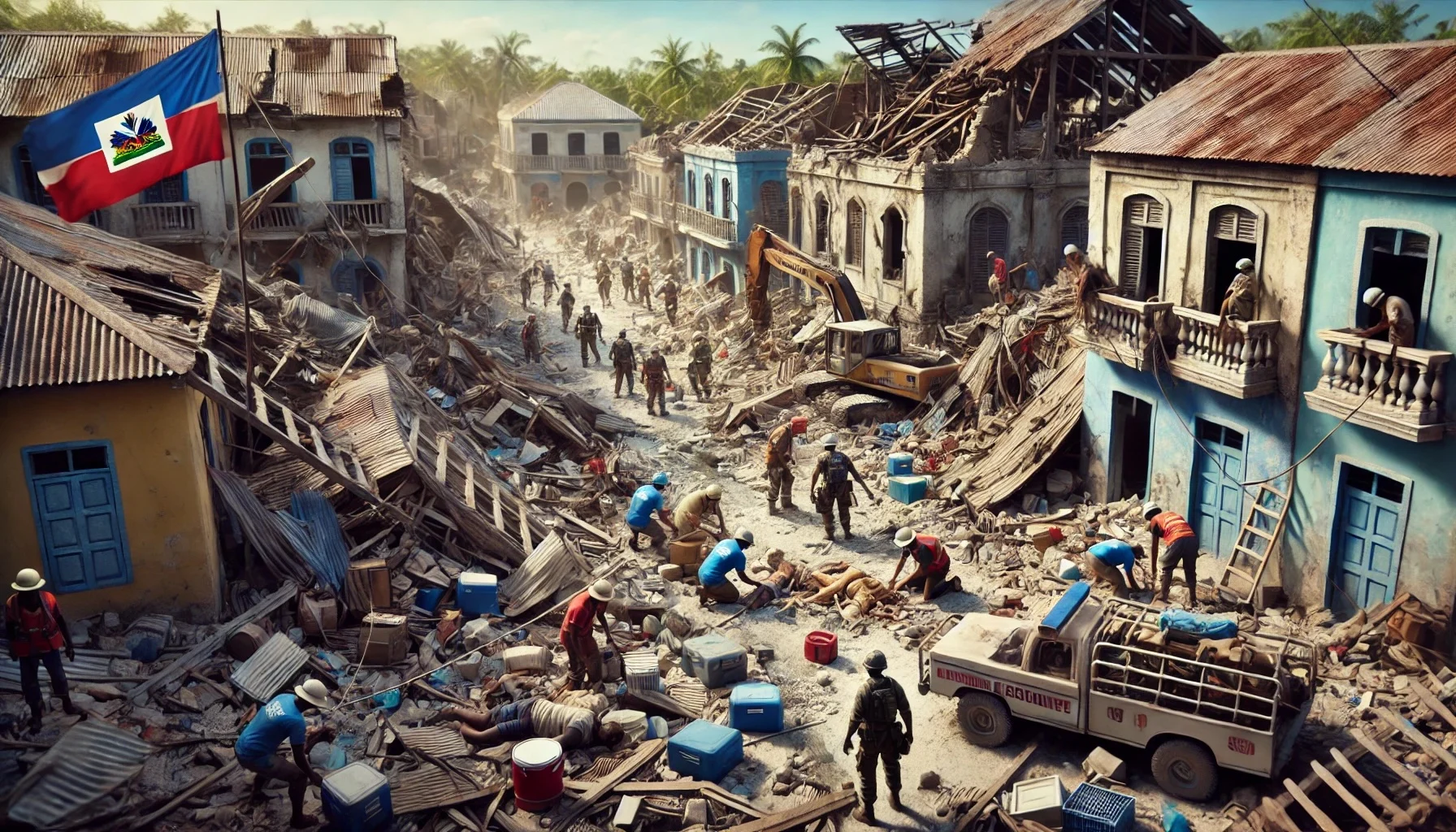
The 2021 Haiti Earthquake
by: The Calamity Calendar Team
August 14, 2021
In the early hours of August 14, 2021, a powerful tremor shook the earth beneath Haiti, sending shockwaves through a nation already grappling with political instability and economic challenges. At 8:29 a.m. local time, the earthquake struck with a magnitude of 7.2, its epicenter located near the town of Petit-Trou-de-Nippes, about 125 kilometers west of the capital, Port-au-Prince. This seismic event was not just a natural disaster; it was a grim reminder of the nation’s vulnerability to the forces of nature and the resilience of its people.
A Nation on the Edge
Haiti sits precariously on the boundary between the Caribbean and North American tectonic plates, making it highly susceptible to earthquakes. The memory of the devastating 2010 earthquake, which claimed over 200,000 lives, was still fresh in the minds of many Haitians. In the lead-up to the 2021 earthquake, the country was already in a state of turmoil, dealing with the assassination of President Jovenel Moïse, the COVID-19 pandemic, and widespread poverty.
The Morning of Chaos
As the ground began to tremble on that fateful morning, buildings swayed and crumbled, and terrified residents rushed into the streets seeking safety. The towns of Les Cayes, Jérémie, and surrounding areas were among the hardest hit. Homes, schools, churches, and hospitals collapsed in an instant, trapping people under heaps of concrete and debris.
Eyewitnesses described scenes of chaos and devastation as rescue efforts began almost immediately. Neighbors and local volunteers became first responders, digging through rubble with their bare hands in desperate attempts to save lives. Despite the destruction, there was an overwhelming sense of community as Haitians rallied together to help one another in their darkest hour.
The Human Toll
The earthquake claimed the lives of over 2,200 people and injured more than 12,000. The sheer scale of the disaster left thousands displaced, their homes reduced to ruins. Approximately 137,500 buildings were damaged or destroyed, including critical infrastructure such as hospitals and schools, exacerbating the already dire humanitarian situation.
The economic impact was estimated to be around $1.5 billion USD, a staggering blow to an already struggling economy. As emergency services and aid organizations arrived, the immediate priority was to provide shelter, medical care, food, and water to those affected. The Haitian government declared a state of emergency, and the international community quickly mobilized to assist in the relief efforts.
Thanks for subscribing!
The Global Response
International aid poured into Haiti as humanitarian organizations, including the United Nations, the Red Cross, and various NGOs, coordinated efforts to deliver essential supplies and services. Despite these efforts, the challenging terrain and damaged infrastructure made it difficult to reach remote areas where help was most needed.
The disaster highlighted the need for improved building codes and disaster preparedness measures in Haiti. The ongoing political and economic challenges posed significant obstacles to implementing these changes. However, the spirit of resilience among the Haitian people shone through as they worked tirelessly to rebuild their communities and their lives.
Lessons and Hope for the Future
The 2021 earthquake served as a stark reminder of Haiti’s vulnerability to natural disasters. The continued risk of seismic activity, combined with socio-economic challenges, underscores the urgent need for sustainable development and resilient infrastructure.
As Haiti continues its recovery efforts, the global community remains committed to supporting the nation in its journey toward rebuilding and strengthening its resilience against future disasters. The people of Haiti have shown remarkable strength and determination, reminding the world of the power of human spirit and solidarity in the face of adversity.
Current Status
Today, recovery efforts are ongoing, with international partners working alongside the Haitian government to address immediate needs and long-term development goals. Despite the challenges, there is hope for a brighter future, driven by the unwavering resilience and courage of the Haitian people.
Stay in the Loop!
Become a Calamity Insider and get exclusive Calamity Calendar updates delivered straight to your inbox.
Thanks! You're now subscribed.